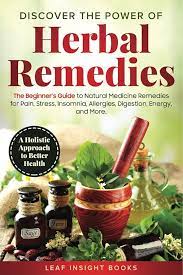The Power of Meditation for Stress Management
In today’s fast-paced world, stress has become a common part of our daily lives. From work pressures to personal challenges, stress can take a toll on our mental and physical well-being. One effective tool for managing stress is meditation.
Meditation is a practice that involves focusing the mind and eliminating the stream of thoughts that may be causing stress and anxiety. By practicing meditation regularly, individuals can cultivate a sense of inner peace, calmness, and clarity that can help them better cope with stressful situations.
Benefits of Meditation for Stress Management:
- Reduced Cortisol Levels: Cortisol is known as the stress hormone. Regular meditation has been shown to lower cortisol levels in the body, reducing overall stress.
- Improved Emotional Well-being: Meditation helps individuals develop emotional resilience and regulate their emotions, leading to a more balanced and positive outlook on life.
- Enhanced Focus and Clarity: By quieting the mind through meditation, individuals can improve their concentration and decision-making abilities, reducing feelings of overwhelm and confusion.
- Better Sleep Quality: Stress often disrupts sleep patterns. Meditation promotes relaxation and can help individuals achieve deeper, more restful sleep.
How to Practice Meditation for Stress Management:
To start incorporating meditation into your daily routine for stress management, follow these simple steps:
- Find a Quiet Space: Choose a peaceful environment where you can sit comfortably without distractions.
- Sit Comfortably: Sit in a relaxed position with your back straight but not rigid. You can sit on a cushion or chair if needed.
- Breathe Mindfully: Close your eyes and focus on your breath. Take slow, deep breaths in through your nose and out through your mouth.
- Focus Your Mind: As thoughts arise, gently redirect your focus back to your breath or a mantra (a word or phrase you repeat silently).
- Practice Regularly: Start with short sessions of 5-10 minutes per day and gradually increase the duration as you become more comfortable with the practice.
In conclusion, meditation is a powerful tool for managing stress that offers numerous benefits for both mental and physical well-being. By incorporating regular meditation practice into your routine, you can cultivate inner peace, reduce stress levels, and enhance overall quality of life.
Top 5 FAQs on Using Meditation for Effective Stress Management
- How long meditation reduce stress?
- What are the 7 steps in managing stress?
- What exercises are good for stress management?
- What are the 5 R’s of stress management?
- Is 20 minutes of meditation good?
How long meditation reduce stress?
Meditation can be an effective tool for reducing stress levels, but the time it takes for meditation to have a noticeable impact on stress varies from person to person. Some individuals may experience immediate relief from stress after a single meditation session, while others may require consistent practice over a period of time to see significant results. The key is to make meditation a regular part of your routine and practice it consistently to reap the benefits of reduced stress and increased relaxation.
What are the 7 steps in managing stress?
Managing stress effectively involves a structured approach that can help individuals navigate challenging situations with resilience and calm. The seven steps in managing stress encompass various strategies, including identifying stressors, practicing mindfulness and relaxation techniques, fostering healthy habits such as exercise and proper nutrition, setting boundaries, seeking social support, prioritizing self-care, and maintaining a positive mindset. By following these steps consistently and adapting them to individual needs, individuals can develop a comprehensive stress management plan that promotes overall well-being and emotional balance.
What exercises are good for stress management?
When it comes to stress management, incorporating meditation exercises into your routine can be highly beneficial. Meditation techniques such as mindfulness meditation, guided visualization, and deep breathing exercises are effective in reducing stress levels and promoting relaxation. Mindfulness meditation helps you stay present in the moment, while guided visualization allows you to create a calm mental space. Deep breathing exercises can help regulate your body’s response to stress by activating the relaxation response. By practicing these meditation exercises regularly, you can cultivate a sense of inner peace and better cope with the challenges of daily life.
What are the 5 R’s of stress management?
The 5 R’s of stress management provide a structured approach to effectively deal with stress and promote overall well-being. These principles include Recognize, Reframe, Relax, Release, and Recharge. Recognizing stress triggers and patterns is the first step in addressing them. Reframing involves changing negative thought patterns into positive ones. Relaxation techniques such as deep breathing and meditation help calm the mind and body. Releasing pent-up emotions through activities like journaling or talking to a trusted individual can be therapeutic. Finally, recharging through self-care practices like exercise, healthy eating, and adequate rest helps restore balance and resilience in managing stress effectively.
Is 20 minutes of meditation good?
When it comes to meditation for stress management, the question of whether 20 minutes of meditation is sufficient is a common one. While the ideal duration of meditation can vary from person to person, many experts recommend that 20 minutes of daily meditation can be beneficial for reducing stress and promoting overall well-being. Consistency and regular practice are key factors in reaping the benefits of meditation, so committing to a daily 20-minute session can help individuals cultivate a sense of calmness, focus, and inner peace over time. Ultimately, the effectiveness of meditation lies in finding a routine that works best for each individual’s unique needs and lifestyle.



